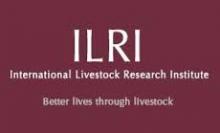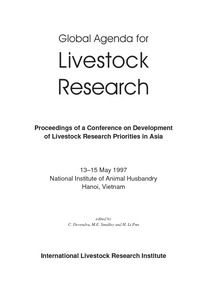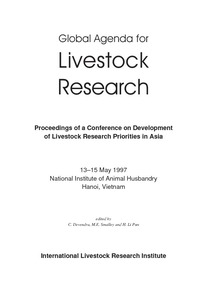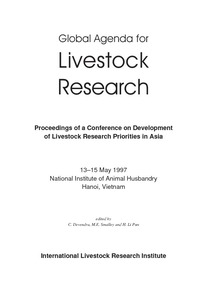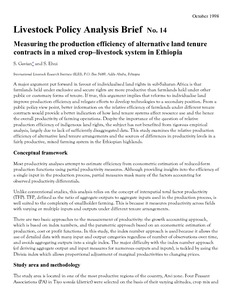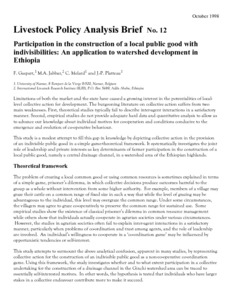Location
Vision, mission and strategy
ILRI's strategy 2013-2022 was approved in December 2012. It emerged from a wide processof consultation and engagement.
ILRI envisions... a world where all people have access to enough food and livelihood options to fulfil their potential.
ILRI’s mission is... to improve food and nutritional security and to reduce poverty in developing countries through research for efficient, safe and sustainable use of livestock—ensuring better lives through livestock.
ILRI’s three strategic objectives are:
- with partners, to develop, test, adapt and promote science-based practices that—being sustainable and scalable—achieve better lives through livestock.
- with partners,to provide compelling scientific evidence in ways that persuade decision-makers—from farms to boardrooms and parliaments—that smarter policies and bigger livestock investments can deliver significant socio-economic, health and environmental dividends to both poor nations and households.
- with partners,to increase capacity among ILRI’s key stakeholders to make better use of livestock science and investments for better lives through livestock.
This is ILRI’s second ten-year strategy. It incorporates a number of changes, many based on learning from the previous strategy (2000–2010, initially produced in 2000 and modified in 2002), an interim strategy (2011–2012) and an assessment of the external and internal environments in which the institute operates.
Members:
Resources
Displaying 931 - 935 of 1152Sustainable production systems programme: current activities and future opportunities
The main objective of ILRI's Sustainable Production Systems Programme is to improve human welfare through the development of more productive and Sustainable crop-livestock sytems in developing countries. The programmes' focus is on market-oriented smallholder crop-livestock systems. In order to improve the productivity and sustainability of these systems, biological, environmental and socio-economic constraints have to be overcome. Therefore, opportunities for changing the systems in a sustainable manner have to be carefully identified and chosen.
Ruminant feed resources research
Poor nutrition because of poor quality feeds and fluctuating feed supply is a major constraint to tropical livestock productivity. The need to supply greater quantities of quality fodder requires development of both new forages and feeding strategies that will enhance the efficiency with which conventional on-farm feed resources are used. Research at ILRI has identified a range of herbaceous forages and fodder tree species which can be used to alleviate the constraints of lack of feed and which can be incorporated as part of sustainable farming systems.
Partnerships with NARS for technology transfer
The International Livestock Research Institute (ILRI) works through partnerships which are critical for two reasons: for collaborative research on key components and constraints and for the development, testing and transfer of technologies, based on farmer's needs. The ILRI programme designed to strengthen partnerships with NARS has a set of integrated activities, viz, training and training materials development, information products and services and networking.
Measuring the production efficiency of alternative land tenure contracts in a mixed crop-livestock system in Ethiopia
A major argument put forward in favour of individualised land rights in sub-Saharan Africa is that farmlands held under exclusive and secure rights are more productive than farmlands held under other public or customary forms of tenure. If true, this argument implies that reforms to individualise land improve production efficiency and relegate efforts to develop technologies to a secondary position.
Livestock Policy Analysis Brief no. 12. Participation in the construction of a local public good with indivisibilities: An application to watershed development in Ethiopia
Limitations of both the market and the state have caused a growing interest in the potentialities of local-level collective action for development. The burgeoning literature on collective action suffers from two main weaknesses. First, theoretical studies typically fail to describe inter-agent interactions in a satisfactory manner. Second, empirical studies do not provide adequate hard data and quantitative analysis to allow us to advance our knowledge about individual motives for co-operation and conditions conductive to the emergence and evolution of co-operative behaviour.

